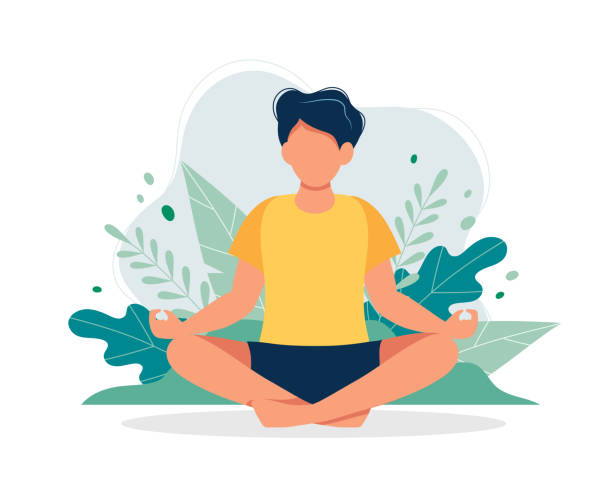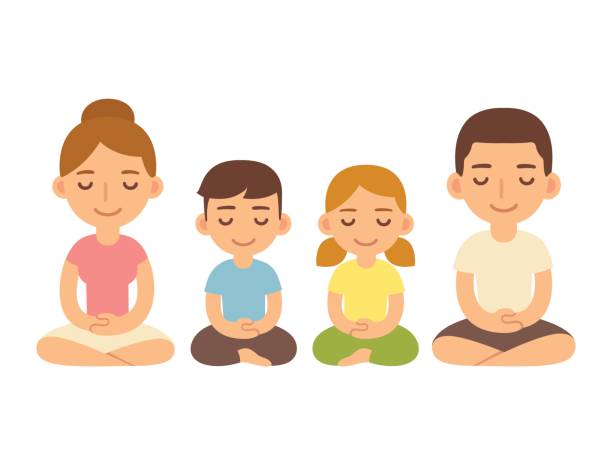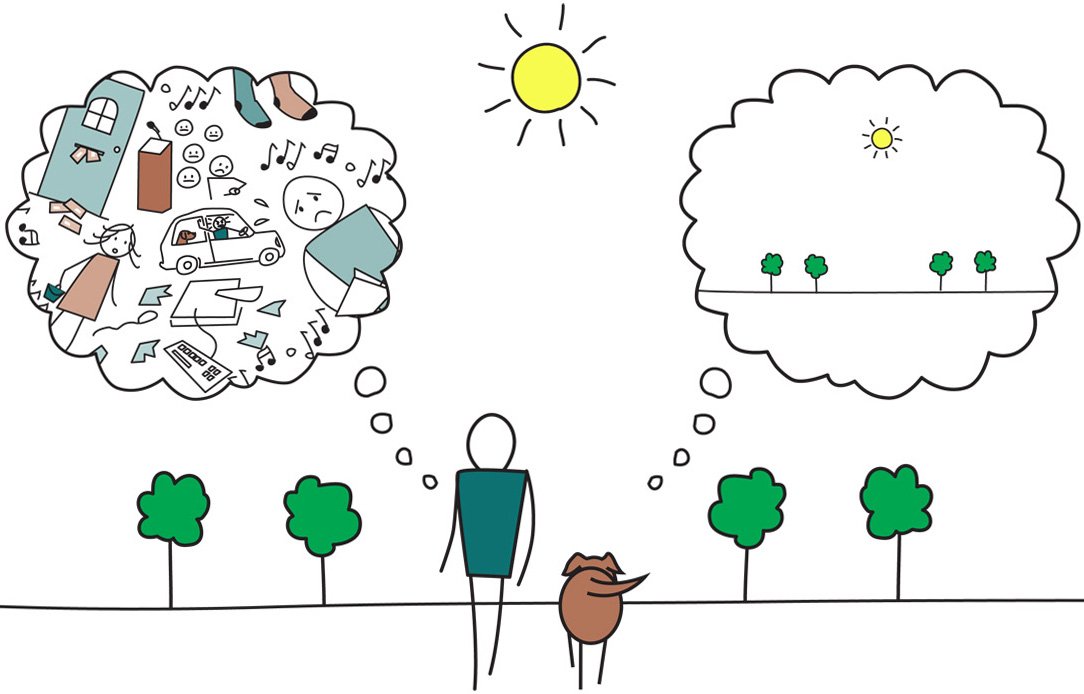
Introduction
Cultivating Presence and Mindfulness Across Ages for a Transformed Society
Purpose and Audience
Cultivating mindfulness and presence can seem challenging, yet it is crucial for personal well-being and societal harmony. This article offers practical guidance on nurturing mindfulness and presence tailored to different age groups, with an emphasis on how parents can effectively support their children in this journey. It is designed for parents, educators, and individuals committed to personal growth and interested in contributing to a more enlightened and compassionate society.
Overview
At the heart are four fundamental concepts that can transform our approach to life and relationships:
- Living in the Present Moment: True peace and fulfillment are found by immersing ourselves fully in the present moment. This means letting go of past regrets and future anxieties, and instead focusing on the here and now.
- Transcending the Ego: The ego, according to Tolle, is a false sense of self constructed from our thoughts and past experiences. It often leads to conflict and dissatisfaction. By recognizing and transcending the ego, individuals can experience a deeper sense of inner peace.
- Understanding the Pain-Body: The “pain-body” is an accumulation of past emotional pain that influences our current experiences. Tolle suggests that by becoming aware of this pain-body and its impact, we can begin to release its grip on our lives.
- Embracing Acceptance and Surrender: Acceptance of the present moment and surrender to it—without resistance—are key to achieving spiritual enlightenment and inner calm. This involves letting go of our desire to control outcomes and instead flowing with life as it unfolds.
By integrating these concepts into our lives, particularly through the lens of different life stages, we can foster a more mindful existence. This article will explore practical strategies for cultivating these principles from early childhood through adulthood and envision how widespread adoption could reshape society for the better.

1. Cultivating Mindfulness in Early Childhood
Understanding the Present Moment
For young children, grasping the concept of the present moment can be simplified through engaging and relatable activities. The goal is to introduce them to the idea that each moment is valuable and worth experiencing fully, without the distractions of past regrets or future worries.
- Simplified Concepts of Time and Presence: Young children may not yet have a full understanding of abstract concepts like time. Instead of explaining time in complex terms, use practical experiences to help them feel and appreciate the present. For instance, explain that now is the time for playing with toys or enjoying a meal, rather than focusing on what happened before or what will happen later.
- Engaging Activities to Foster Present-Moment Awareness:
- Sensory Play: Activities that engage the senses—such as playing with sand, water, or clay—help children experience the present moment through tactile exploration. Sensory play encourages mindfulness by focusing their attention on the immediate sensations they are experiencing.
- Mindful Breathing: Simple breathing exercises can be introduced through fun and interactive methods. For example, blowing bubbles and watching them float away or pretending to be a “balloon” that inflates and deflates can make mindful breathing accessible and enjoyable for young children.
Role of Parents
Parents play a crucial role in nurturing mindfulness in their children from an early age. By incorporating mindfulness into daily routines and modeling mindful behaviors, parents can help instill these practices in their children.
- Modeling Mindfulness Through Daily Routines:
- Mindful Interaction: Show mindfulness through your interactions with your child. When engaging in activities like reading a book or playing a game, be fully present and attentive, demonstrating how to focus on the current experience.
- Mindful Communication: Practice active listening and presence during conversations with your child. This not only helps in creating a supportive environment but also teaches children the importance of being attentive and engaged.
- Encouraging Simple, Mindful Practices:
- Paying Attention to Meals: Turn mealtimes into mindful moments by encouraging children to appreciate the colors, smells, and textures of their food. This practice helps them develop an awareness of their senses and the present moment.
- Nature Walks: Take regular walks in nature and use these opportunities to explore and observe the environment. Encourage your child to notice the sights, sounds, and smells of nature, fostering a sense of presence and connection with the world around them.
By incorporating these practices into early childhood, parents can help lay the foundation for a lifelong appreciation of mindfulness. Engaging activities and mindful routines not only support emotional development but also cultivate a sense of peace and presence that can benefit children throughout their lives.

2. Developing Mindfulness in Adolescents
Navigating Past and Future Concerns
Adolescence is a critical period marked by significant academic, social, and personal pressures. Cultivating mindfulness during this stage helps adolescents manage stress and maintain a balanced perspective on their lives.
- Techniques for Managing Stress Related to Academic and Social Pressures:
- Mindful Time Management: Encourage adolescents to use time management techniques that promote mindfulness, such as breaking tasks into smaller, manageable steps and focusing on one task at a time. Techniques like the Pomodoro Technique, which involves working in focused intervals with short breaks, can reduce feelings of overwhelm.
- Stress-Reduction Practices: Introduce stress-reduction techniques such as mindfulness meditation, progressive muscle relaxation, or yoga. These practices help adolescents manage stress by promoting relaxation and enhancing their ability to stay present in the moment.
- Balanced Perspective: Teach adolescents to reframe negative thoughts and focus on their strengths and achievements. Encourage them to challenge perfectionistic tendencies and view challenges as opportunities for growth.
- Promoting Self-Awareness and Reflection Through Journaling and Discussions:
- Journaling: Encourage adolescents to maintain a journal where they can reflect on their experiences, emotions, and thoughts. Journaling fosters self-awareness by allowing them to process their feelings and gain insights into their patterns of thought and behavior.
- Open Discussions: Facilitate regular discussions about their experiences and concerns. Use open-ended questions to help adolescents explore their thoughts and feelings, and encourage them to express their worries and aspirations in a safe and non-judgmental environment.
Role of Parents and Educators
Parents and educators play a pivotal role in supporting adolescents’ mindfulness development by fostering emotional intelligence and providing a supportive environment for open communication.
- Supporting Emotional Intelligence and Self-Regulation:
- Emotional Awareness: Help adolescents identify and label their emotions, promoting a deeper understanding of their emotional experiences. Teach them to recognize physical and emotional signs of stress and develop healthy coping strategies.
- Self-Regulation Techniques: Introduce self-regulation techniques such as mindfulness exercises, breathing techniques, and grounding practices that can help adolescents manage their emotions and reactions effectively.
- Creating Safe Spaces for Open Conversations:
- Encouraging Expression: Create an environment where adolescents feel comfortable discussing their experiences, worries, and dreams. Let them know that their feelings are valid and that it’s okay to express themselves openly.
- Active Listening: Practice active listening by giving full attention during conversations and validating their experiences. Offer support and guidance without rushing to solve their problems or dismissing their concerns.
By integrating these practices into their daily lives, adolescents can develop a stronger sense of self-awareness, emotional resilience, and mindfulness. Support from parents and educators helps create a nurturing environment that fosters these qualities, enabling adolescents to navigate the complexities of their teenage years with greater ease and balance.

3. Fostering Presence in Young Adults
Balancing Life’s Demands
Young adulthood is a period of significant transition, with many individuals juggling career aspirations, personal responsibilities, and social relationships. Cultivating mindfulness during this phase can help manage these demands and promote overall well-being.
- Strategies for Maintaining Mindfulness Amid Career and Personal Life Challenges:
- Prioritizing Self-Care: Emphasize the importance of self-care routines such as regular exercise, adequate sleep, and healthy eating. Encourage young adults to set aside time for activities that they find fulfilling and restorative, which helps in maintaining a balanced approach to life.
- Mindful Goal Setting: Assist in setting realistic and achievable goals by focusing on what can be done in the present moment rather than becoming overwhelmed by long-term outcomes. Break down larger goals into smaller, manageable steps to maintain focus and reduce stress.
- Techniques for Avoiding Burnout and Stress Through Mindfulness and Time Management:
- Mindful Time Management: Encourage the use of time management tools such as planners or digital apps that promote mindful scheduling. Techniques like prioritizing tasks and setting aside specific times for focused work and relaxation can help manage workloads effectively.
- Burnout Prevention: Teach mindfulness techniques to recognize early signs of burnout and stress. Practices such as mindful breathing, body scans, and short meditation sessions can help in reducing tension and enhancing overall mental clarity.
Role of Mentors and Leaders
Mentors and leaders play a crucial role in fostering an environment where mindfulness and presence are valued. Their guidance and example can significantly influence young adults’ approach to balancing their responsibilities and maintaining their well-being.
- Encouraging Practices Such as Meditation and Mindful Productivity:
- Incorporating Mindfulness in Workplaces: Promote the integration of mindfulness practices such as meditation sessions, mindful breaks, and stress management workshops in professional settings. These practices can help young adults manage work-related stress and improve productivity.
- Mindful Productivity Techniques: Advocate for techniques that enhance mindful productivity, such as focusing on one task at a time, taking regular breaks to recharge, and employing techniques like the Eisenhower Matrix to prioritize tasks effectively.
- Leading by Example and Fostering Environments That Value Presence and Well-Being:
- Modeling Mindfulness: Leaders and mentors should model mindful behaviors by practicing presence, active listening, and stress management techniques. Their example can inspire young adults to adopt similar practices in their own lives.
- Creating Supportive Environments: Foster work and learning environments that prioritize well-being by encouraging open communication, providing resources for mental health support, and recognizing the importance of work-life balance.
By implementing these strategies and fostering supportive environments, young adults can navigate the demands of their careers and personal lives with greater mindfulness and resilience. This approach not only enhances individual well-being but also contributes to more productive and harmonious professional and personal relationships.

4. Embracing Mindfulness in Adulthood
Enhancing Personal and Professional Life
In adulthood, mindfulness can significantly enrich personal relationships, career satisfaction, and overall life fulfillment. By embracing mindfulness, individuals can navigate the complexities of adult life with greater ease and satisfaction.
- Utilizing Mindfulness to Improve Relationships, Career Satisfaction, and Personal Fulfillment:
- Improving Relationships: Mindfulness fosters deeper connections by enhancing empathy, active listening, and non-reactive communication. Practicing presence during interactions helps in understanding others’ perspectives and responding thoughtfully, leading to more harmonious and meaningful relationships.
- Career Satisfaction: Apply mindfulness techniques to increase job satisfaction by focusing on the present tasks, finding purpose in one’s work, and managing stress. Techniques such as mindful goal setting and gratitude practices can help in maintaining motivation and aligning career activities with personal values.
- Personal Fulfillment: Mindfulness encourages self-reflection and self-acceptance, which are crucial for personal growth. Engaging in regular mindfulness practices helps individuals to stay grounded in their values, pursue passions, and cultivate a sense of fulfillment in their lives.
- Overcoming Ego-Driven Conflicts and Fostering Genuine Connections:
- Recognizing and Transcending the Ego: Understanding the role of the ego in creating conflicts can help in resolving misunderstandings and reducing interpersonal friction. Mindfulness practices, such as observing one’s thoughts without judgment, can aid in recognizing and transcending ego-driven reactions.
- Fostering Genuine Connections: By focusing on authenticity and presence, individuals can build stronger, more genuine connections. Mindfulness helps in cultivating a non-judgmental attitude and appreciating others for who they are, leading to more authentic and supportive relationships.
Role of the Community
Communities play a vital role in supporting mindfulness practices and fostering environments that prioritize mental and emotional well-being. By integrating mindfulness into community structures, individuals can benefit from collective support and shared practices.
- Building Supportive Networks That Prioritize Mental and Emotional Well-Being:
- Creating Supportive Communities: Develop networks and support groups that emphasize mental health and well-being. Initiatives such as mindfulness-based support groups, wellness workshops, and community counseling services can provide valuable resources and support.
- Promoting Mental Health Awareness: Advocate for mental health awareness and education within communities to reduce stigma and encourage open discussions about well-being. Providing resources and support for mental health can help individuals access the help they need and promote a culture of care.
- Implementing Mindfulness Practices in Organizational Cultures and Community Activities:
- Organizational Integration: Encourage organizations to adopt mindfulness practices such as meditation sessions, stress management workshops, and mindful leadership training. These practices can enhance workplace culture, increase employee satisfaction, and improve overall organizational health.
- Community Activities: Incorporate mindfulness practices into community events and activities, such as mindfulness-based classes, wellness fairs, and public talks. Engaging the community in mindfulness can foster a collective sense of well-being and create opportunities for individuals to connect and support each other.
By embracing mindfulness in adulthood and fostering supportive community structures, individuals and organizations can enhance personal satisfaction, professional success, and overall well-being. These practices contribute to creating a more mindful and compassionate society, where people can thrive both personally and collectively.

5. Societal Transformation Through Collective Mindfulness
Impact of Widespread Adoption
The widespread adoption of mindfulness can lead to profound societal transformation, where mindfulness and presence become integral to daily life. This shift has the potential to create a more harmonious, empathetic, and connected society.
- Envisioning a Society Where Mindfulness and Presence Are Integral to Daily Life:
- Mindful Interactions: In a society where mindfulness is widespread, interactions would be characterized by greater presence, empathy, and understanding. People would engage in conversations with a deeper level of attention, leading to more meaningful and respectful exchanges.
- Mindful Decision-Making: Decision-making processes at all levels—personal, organizational, and governmental—would benefit from mindful consideration, leading to choices that reflect long-term well-being rather than short-term gains. This shift would foster more sustainable and ethical practices.
- Benefits Such as Reduced Conflict, Increased Empathy, and Enhanced Communal Harmony:
- Reduced Conflict: Mindfulness helps in managing conflicts by promoting non-reactive communication and understanding differing perspectives. This leads to more constructive and peaceful resolutions.
- Increased Empathy: With greater mindfulness, individuals are more likely to empathize with others’ experiences and emotions. This enhanced empathy fosters stronger community bonds and supports more inclusive and compassionate social interactions.
- Enhanced Communal Harmony: A mindful society values emotional well-being and mental health, creating a supportive environment that enhances communal harmony. People would be more inclined to support each other and work collaboratively towards common goals.
Challenges and Opportunities
While the benefits of widespread mindfulness are substantial, there are challenges to achieving this transformation. Addressing these challenges and seizing opportunities can help in fostering a mindful society.
- Addressing Potential Obstacles in Achieving Widespread Mindfulness:
- Resistance to Change: Cultural and individual resistance to adopting new practices can be a significant barrier. Overcoming this resistance requires effective education and communication about the benefits of mindfulness and practical ways to integrate it into daily life.
- Access and Inclusivity: Ensuring that mindfulness practices are accessible to all, regardless of socioeconomic status, is crucial. Addressing disparities in access to mindfulness resources and education is necessary to create an inclusive approach.
- Opportunities for Societal Change Through Education, Policy, and Community Initiatives:
- Education: Incorporating mindfulness education into school curricula can equip future generations with tools for emotional regulation, stress management, and self-awareness. Training teachers and educators in mindfulness practices can enhance their ability to support students effectively.
- Policy: Advocating for policies that promote mental health and well-being, such as workplace wellness programs and public mental health initiatives, can support the widespread adoption of mindfulness practices. Government and organizational policies that encourage mindfulness can create systemic changes that benefit society as a whole.
- Community Initiatives: Developing community-based mindfulness programs, such as local meditation groups, wellness workshops, and public mindfulness events, can help spread mindfulness practices and build supportive networks. Community initiatives can also foster a culture of mindfulness and well-being at the grassroots level.
By addressing challenges and leveraging opportunities, we can work towards a societal transformation where mindfulness and presence are deeply embedded in daily life. This collective shift has the potential to enhance individual well-being, foster communal harmony, and create a more compassionate and connected world.

Conclusion
Summary of Key Points
Cultivating mindfulness at various life stages—from early childhood to adulthood—offers numerous benefits for individuals and society as a whole. In early childhood, mindfulness practices help children develop a sense of presence and emotional awareness. For adolescents, mindfulness supports stress management and self-reflection amidst academic and social pressures. Young adults can benefit from mindfulness by enhancing their personal and professional lives while navigating the complexities of adulthood. In adulthood, embracing mindfulness fosters improved relationships, career satisfaction, and overall fulfillment. When practiced collectively, mindfulness can transform society by reducing conflict, increasing empathy, and promoting communal harmony.
Call to Action
Integrating mindfulness practices into daily life is a powerful step towards personal growth and societal improvement. We encourage readers to begin incorporating mindfulness techniques into their routines, such as mindful breathing, meditation, and reflective journaling. By making mindfulness a regular practice, individuals can experience enhanced well-being and contribute to a more compassionate world. Additionally, support and participation in mindfulness initiatives, whether through community programs or personal endeavors, can amplify these benefits.
The MEDA Foundation is dedicated to creating self-sustaining ecosystems that foster self-sufficiency and happiness for individuals, including those on the autism spectrum. By supporting the MEDA Foundation, you contribute to initiatives that promote mental and emotional well-being, helping individuals and communities thrive. We invite you to participate in our programs and consider making a donation to advance our mission. Your support plays a crucial role in building a more inclusive and supportive society.
Book References
- Eckhart Tolle, The Power of Now: A Guide to Spiritual Enlightenment
This seminal work explores the principles of living in the present moment and transcending the ego. Tolle’s teachings provide practical advice on how to cultivate mindfulness and achieve spiritual awakening. - Jon Kabat-Zinn, Wherever You Go, There You Are: Mindfulness Meditation in Everyday Life
Jon Kabat-Zinn introduces mindfulness meditation and its applications in everyday life. This book offers practical techniques for integrating mindfulness into daily routines and overcoming common challenges. - Thich Nhat Hanh, The Miracle of Mindfulness: An Introduction to the Practice of Meditation
Renowned Buddhist monk Thich Nhat Hanh provides a clear and accessible introduction to mindfulness and meditation. The book includes practical exercises and insights for cultivating mindfulness in everyday activities. - Daniel J. Siegel, The Mindful Therapist: A Clinician’s Guide to Mindsight and Neural Integration
This book by Daniel J. Siegel explores how mindfulness can enhance therapeutic practices and promote emotional well-being. It offers insights into the neuroscience of mindfulness and its applications in therapy. - Sharon Salzberg, Real Happiness: The Power of Meditation
Sharon Salzberg offers practical guidance on meditation and its benefits for personal happiness and well-being. The book includes a 28-day program for developing a regular meditation practice.









